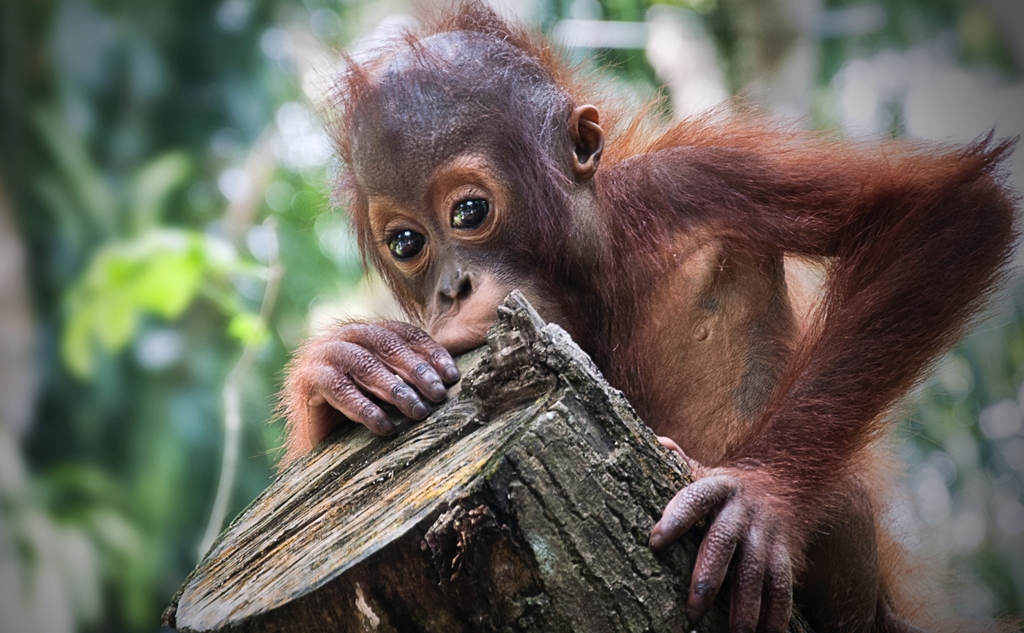In this article, the role of UK companies via palm oil sustainability is examined as part of the cure to animal extinction
Demand for food and agriculture poses one of the biggest dangers to the planet: It is the leading cause of deforestation, responsible for clearing huge areas of valuable habitat and threatening wildlife to the point of extinction.
What is Palm oil?
Palm oil is a globally important vegetable oil found in an enormous range of food and non-food products that we use on a daily basis. It is a very productive crop, producing more oil per land area and requiring fewer inputs than any other equivalent vegetable oil crop. Grown only in the tropics, Indonesia and Malaysia produce around 85% of the world’s palm.

But its proliferation has led to extensive and ongoing deforestation in these precious tropical regions, threatening wildlife such as orangutans, elephants and tigers. Production is expected to double between 2009 and 2050, putting even greater pressure on the vulnerable habitats of these iconic species.
How are British companies helping?
The 2016 edition of WWF’s Palm Oil Buyers Scorecard, looks at 137 major retailers, consumer goods manufacturers and food service companies from the around the world including key UK brands like Tesco, Sainsbury’s, Marks & Spencer, Waitrose and Morrison’s among others.
British retailers, manufacturers and food service companies scored among the best in this edition, against some of the expectations that WWF has on business following over 10 years of campaigning.
Much loved British companies such as Marks and Spencer and Boots are ‘leading the way’ on sourcing sustainable palm oil. But whilst there’s welcome progress from some, a number of important global brands are not acting or are hiding from the issue.
Palm oil is in 50% of the packaged products that we buy, from pizza to lipstick, so we won’t stop fighting until we can record 100% sustainable palm oil being used. Switching to another vegetable oil isn’t the answer, as alternatives can use 4 to 10 times the amount of land, stimulating even more deforestation in other parts of the world.
WWF will be re-assessing these companies in 2019 to report on their progress to meet their 2020 commitments to remove deforestation from their supply chain and use only sustainable palm oil in their products. They want to make it easier for consumers like you to be able to shop sustainably so we don’t have to choose between good and bad palm oil.
WWF have also been working closely with the industry on strengthening the RSPO (Roundtable on Sustainable Palm Oil) standard, with a vote having been approved on 15th of November to ensure there are stronger safeguards on issues including deforestation, expansion on peat and exploitation of labour.
WWF sees the newly adopted RSPO Principles and Criteria as a big step forward in addressing the weaknesses in the previous version and believes it now represents an essential tool that can help companies achieve their commitments.
What can you do to stop palm oil use?
You can do your bit and help in making palm oil sustainable too. Firstly, it’s key to understand what products you can genuinely trust. Giki, an app which acts as your ‘sustainable shopping companion,’ have just launched a ‘palm oil badge.’
The badge tells you whether there is palm oil in the product or not. It also indicates whether it’s sustainable, taking into account whether the parent company are making the right decisions, based on both the WWF scorecard and RSPO data.
To find out more about palm oil, see our ‘8 things to know about palm oil.’












This is not quite correct.
Yes, palm oil is present in about 50% of the packaged products we buy and yes we can impact deforestation by transitioning to sustainable practices in palm oil production.
But the leading cause of environmental destruction, leading cause of damage to human health, leading cause of waste of water and food, leading cause of deforestation, leading cause of animal extinction and cruelty to animals, and leading cause to degradation of antibiotics — and the second-greatest cause of global warming — is meat production.
Eating meat is not morally wrong when it is sustainable and humane, and we can restore the Earth without eliminating meat, but we can not accomplish the vital transition to a sustainable future while our leaders continue to validate our ignoring the role of meat.